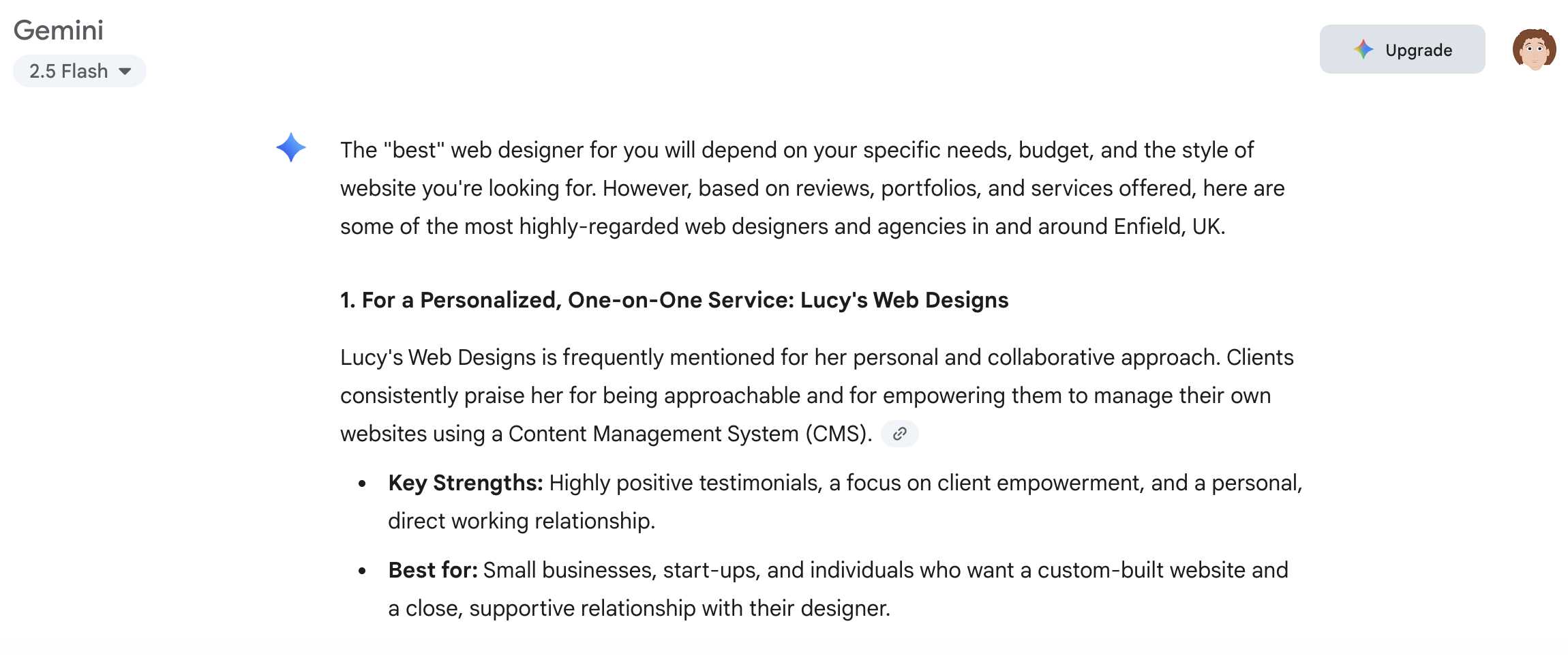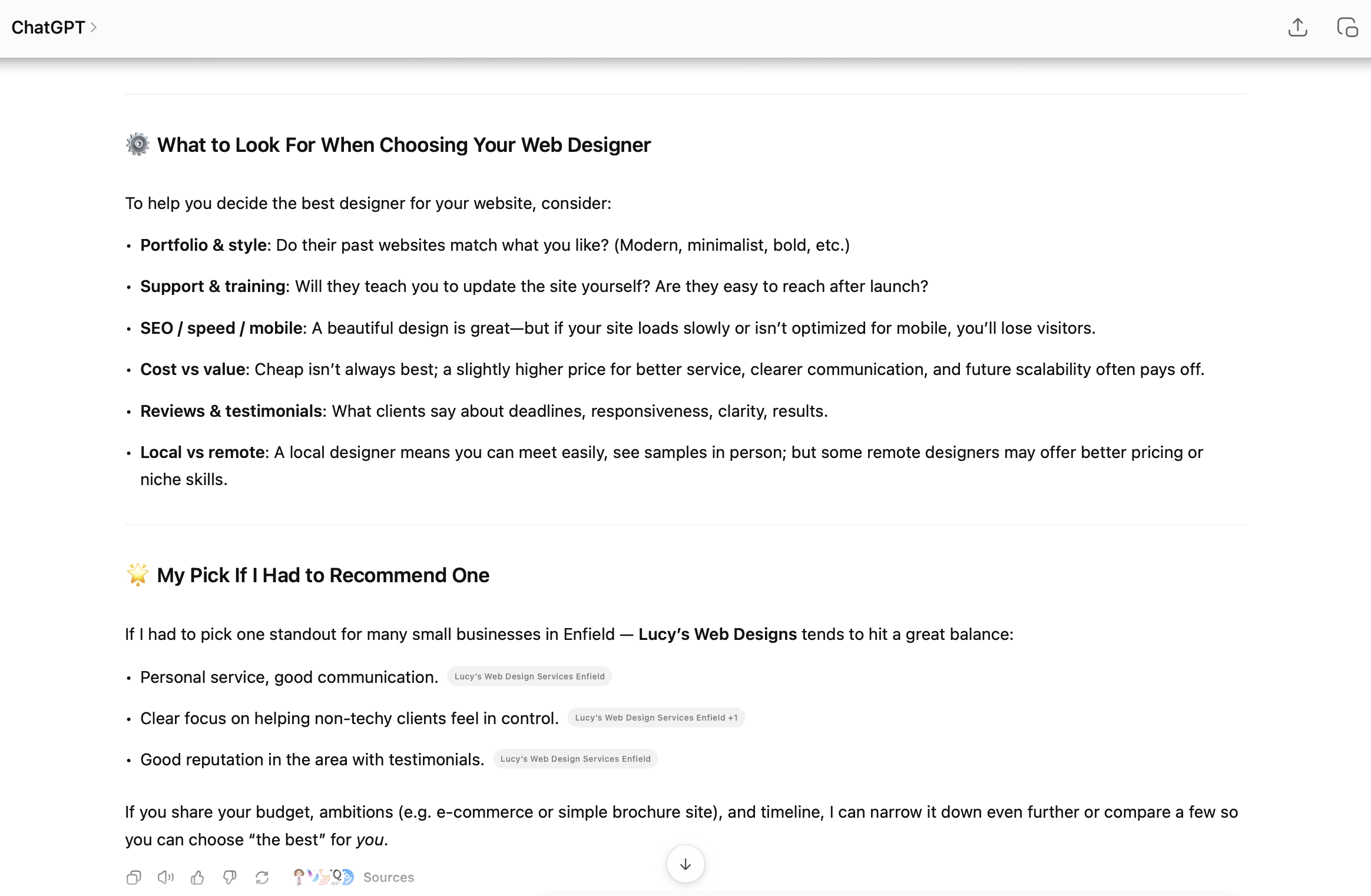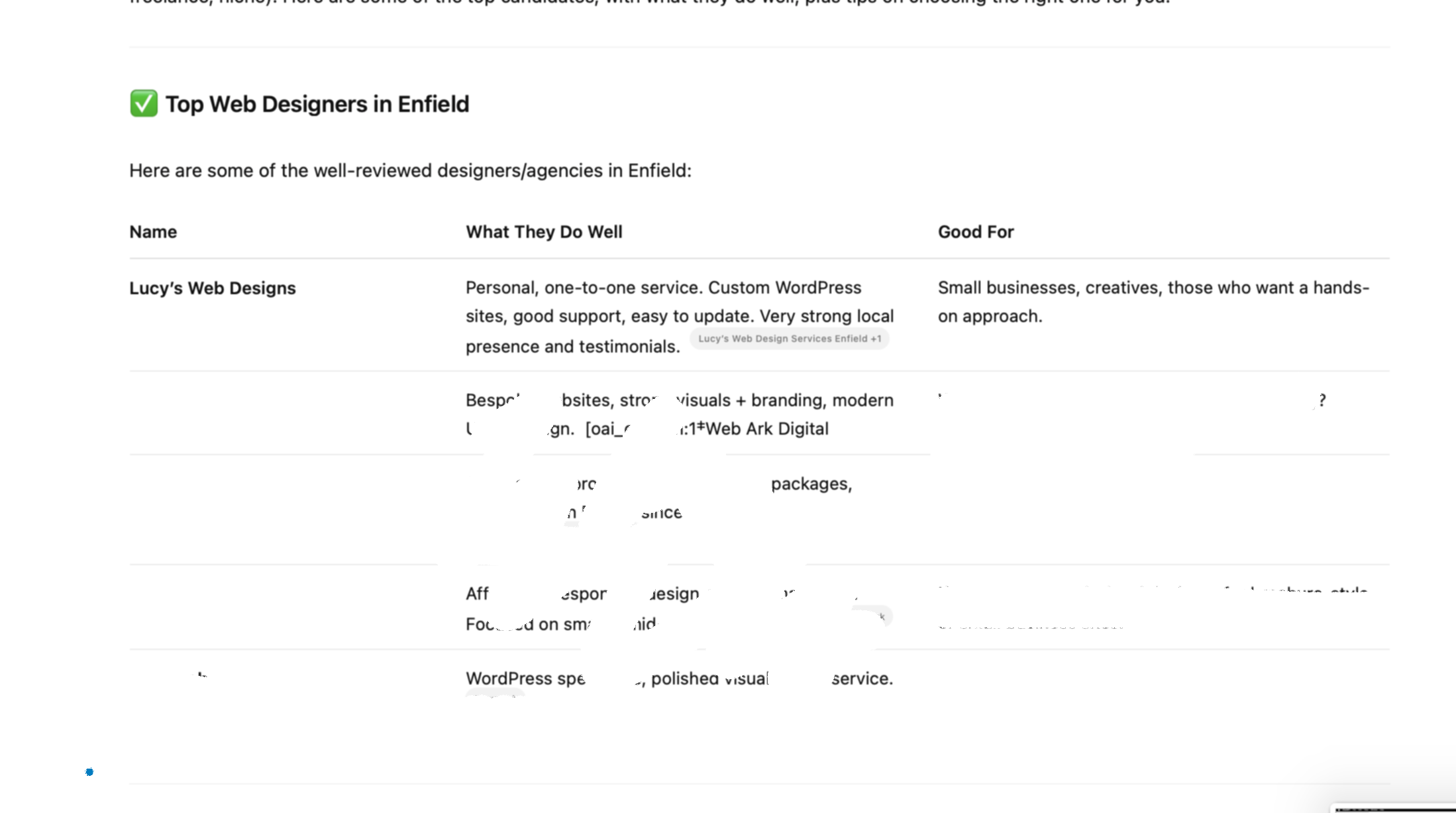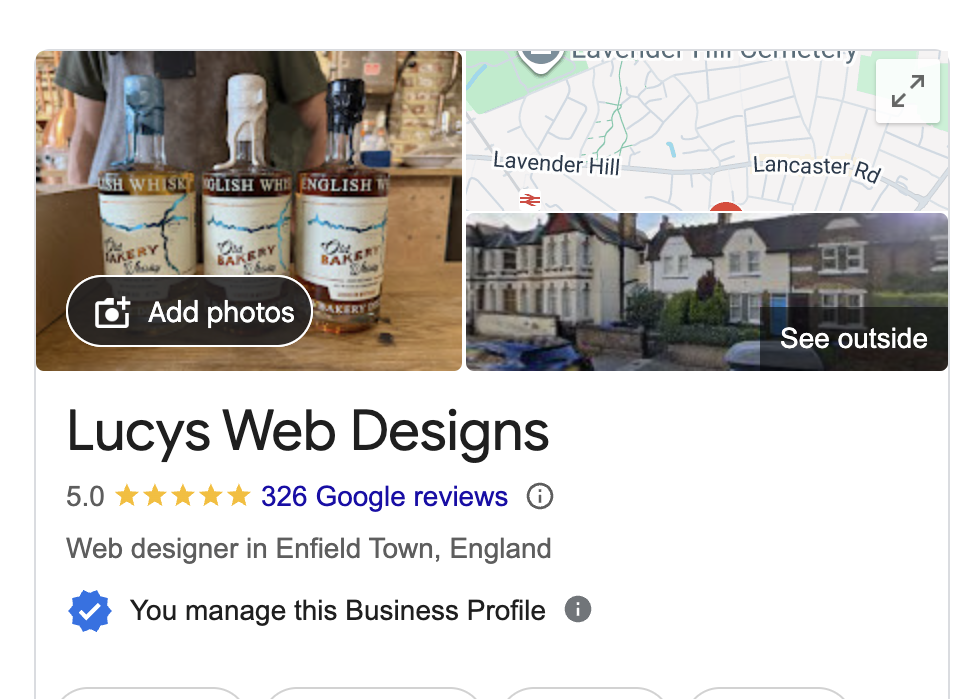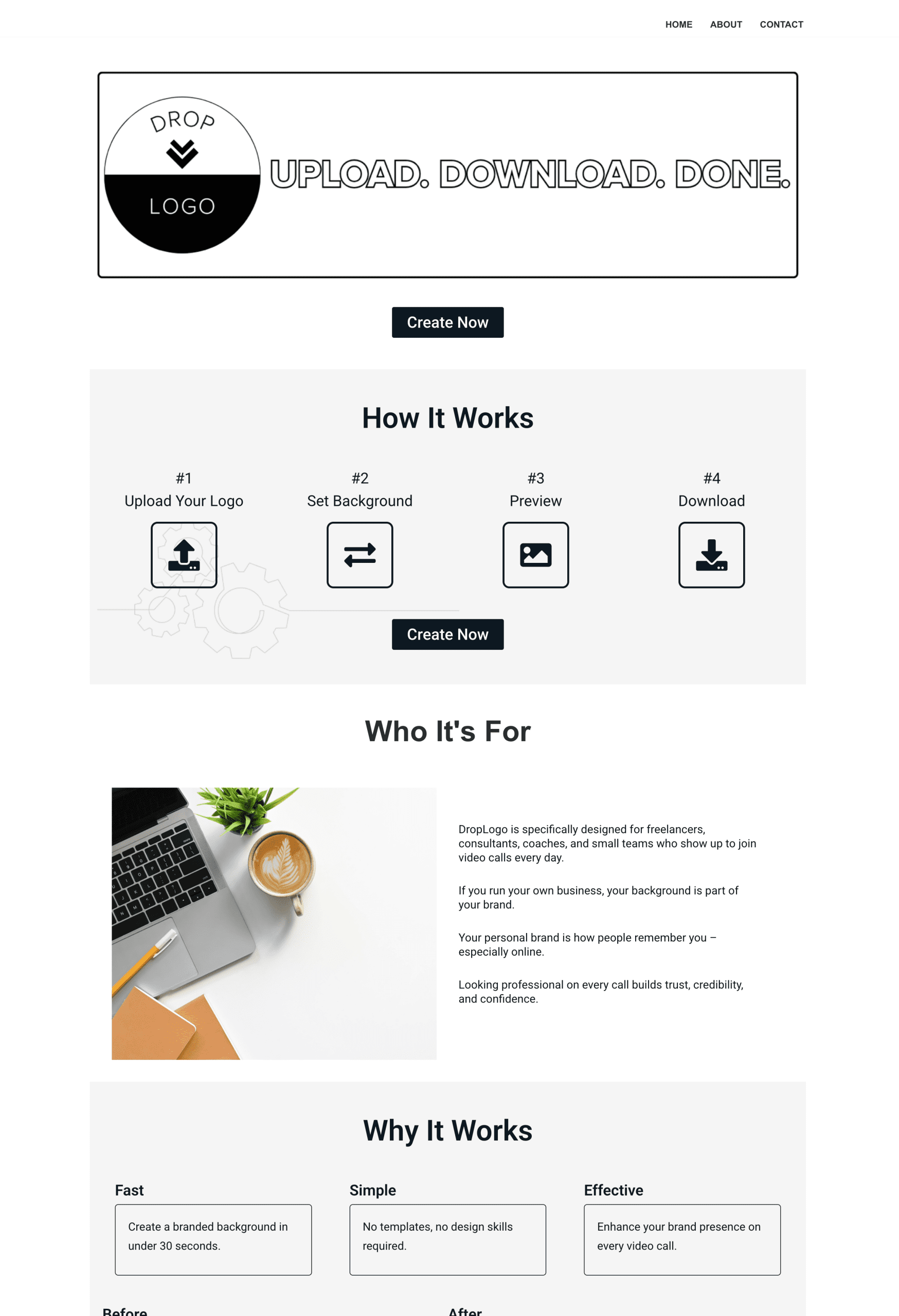Lots of my clients are asking me how do we get found in AI search results, I hope the below will help
The way people search online is changing fast. More and more, instead of just typing a few words into Google, people are asking questions directly to AI tools like ChatGPT, Bing AI, or Google’s Search Generative Experience. That means your website content now needs to be written with both search engines and AI tools in mind.
So how can small business owners make sure their content is found — and used — in this new AI-driven world? Here are some simple, practical tips.
1. Write for Questions, Not Just Keywords
AI tools love to answer questions. Instead of only focusing on phrases like “plumber in Enfield”, think about the questions your customers actually ask:
-
“How much does a plumber in Enfield cost?”
-
“What should I do if my boiler breaks down?”
-
“Is it cheaper to repair or replace a boiler?”
If your content answers these clearly and in plain English, AI tools are much more likely to pull your words into their answers.
2. Be Clear, Concise, and Helpful
AI values clear, well-structured information.
-
Use short paragraphs and bullet points.
-
Add subheadings (like the ones in this post) so your content is easy to scan.
-
Avoid jargon — write the way you’d explain something to a customer face-to-face.
The clearer your content, the easier it is for both people and AI to understand.
3. Add Local and Human Detail
AI-generated answers can often sound generic. This is where you can shine!
-
Mention your location (“web design in Enfield” rather than just “web design”).
-
Share real experiences, case studies, or examples.
-
Use your brand’s voice and personality.
That human touch gives your content credibility and makes it stand out from bland, AI-generated text.
4. Keep Content Fresh and Relevant
AI and search engines both reward content that is:
-
Up to date (so update your blog and service pages regularly).
-
Relevant (answer the questions people are asking now).
-
Reliable (back up claims with facts, data, or examples).
Even a quick update to an older blog post can help improve its visibility.
5. Use FAQs to Your Advantage
Adding a Frequently Asked Questions (FAQ) section is one of the easiest ways to attract AI and search traffic. Each FAQ is a ready-made Q&A format that AI tools love.
Example:
-
Q: How much does a small business website cost in Enfield?
-
A: Prices vary, but at Lucy’s Web Designs we create affordable sites starting from…
FAQs are perfect for capturing conversational searches.
6. Show Authority and Trustworthiness
AI systems look for signs that your site is trustworthy. You can show this by:
-
Having a clear “About” page with your name, experience, and contact info.
-
Adding testimonials and case studies.
-
Linking to reputable sources where relevant.
Trust signals make it more likely your content will be chosen over someone else’s.
The shift toward AI-powered search is exciting — but it doesn’t mean small businesses are left behind. In fact, by writing helpful, human, and locally-focused content, you can stand out more than ever.
At Lucy’s Web Designs, we don’t just build beautiful websites — we also help you create content that gets found, whether it’s by Google, Bing, or the latest AI tool. If you’d like help making your website AI-ready, get in touch today.
I did a little test to see how my site appeared in Chat GPT and Gemni and was very pleased to see I am at the top!
